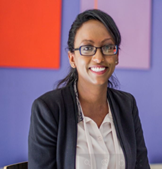Lecture Description
Coffee is the most internationally traded agricultural produce, with millions of smallholder farmers depending on it for their livelihoods.
Coffea arabica, the most economically significant coffee species in terms of volume of production and trade, is native to Ethiopia. It’s wild populations, forest coffee, have significantly higher genetic diversity compared to cultivated variants, which has implications for disease resistance, improved yield, climate change resilience, among others.
Despite this rich biodiversity, with its economic importance for the global coffee market, Ethiopia’s forest coffee is yet to attain premium coffee status. The result is that small-scale coffee producers in Ethiopia, who are often among the poorest in the country, earn below farmgate prices for what is indeed premium coffee.
Coffea arabica presents an economic and conservation opportunity for Ethiopia and globally, with the right investment. Partnerships for Forests and partners have been working to rebrand Ethiopia’s forest coffee into a premium brand and help small-scale coffee producers harness the potentials of its biodiversity to expand their coffee businesses.
The panel will discuss implications of the biodiversity of Ethiopia’s Coffea arabica for Ethiopia and the global coffee market, and how Partnerships for Forests has successfully positioned it for the global premium coffee market.
Date: Friday, June 23, 2023
Time: 3:30pm - 4:30pm EET
Location: Lecture Room 1
Presenters:
Feker Tadesse
Regional Programme Manager, Partnerships for Forests, Palladium International
Feker Tadesse is the Regional Programme Manager at Partnerships for Forests. Feker manages the East Africa portfolio across 5 countries. She has over 10 years of experience in sustainable land use, access to finance and food security. Feker holds a B.A in International Relations from Mount Holyoke College and an M.P.A from Princeton University.
Raffael Fondacci
Project Manager, GIZ Deutsche Gesellschaft für Internationale Zusammenarbeit GmbH
Raffael Fondacci is a mechatronics engineering graduate working as a project manager for GIZ InS for the past 4 years and based in Ethiopia.
In his position he manages a project in the Ethiopian Forest Coffee sector where he works with 17,000 smallholder farmers under 58 Cooperatives to strengthen the supply chain.
The project works to provide technical support, certification, traceability, capacity building and market linkage with the aim of incentivising the farmers to protect the forests from which they harvest the forest coffee.
Raffael enjoys working in the development sector where he can deliver real impact on the ground which is a great source of motivation. Outside of work, Raffael enjoys travelling, horse-riding and basketball.


